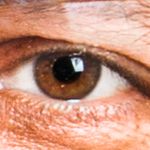- Home
- Stock
- Discussions
- Re: Are AI assets licensed from Adobe copyright pr...
- Re: Are AI assets licensed from Adobe copyright pr...
Are AI assets licensed from Adobe copyright protected?
Copy link to clipboard
Copied
Dear community,
I have recently gotten into book cover designing.
All cover designs are built using Adobe Stock images, which are paid for and licensed.
It was my understanding that all royalty free assets sold by Adobe Stock are copyright protected?!
I have subsequently been told that AI generated imagery cannot by copyright protected? Even if said assets are purchased from Adobe.
Please help!
Copy link to clipboard
Copied
From my understanding the ruling in the United States for AI generated imagery is that the raw result from the generators is automatically in the public domain meaning it is legal to use for any purposes you could want including selling; however, you wouldn't be able to copyright the original generated image. If you make modifications and change or fix the image like many contributors do, then their modifications and work ontop of the AI would be copyrighted to them but for the sake of AdobeStock it would be still under the category of AI Generated. So I'm not aware of any issues with using it since the images should either be public domain or properly copyrighted like any other image but I'm not a lawyer so hopefully somone can chime in with proper citations.
Unless someone shows you the original image it would be very hard to know how much they modified it or what parts were changed and so it would be incredibly risky to assume that just because it is AI generated, that it does not have copyright protection over any of it.
Copy link to clipboard
Copied
First: Copyright of AI-generated assets depends on where the creator is located because the US interpretation is not universal.
Second: when you buy an asset from Adobe, or any other stock provider, you are still bound by the licensing terms of that provider.
Copy link to clipboard
Copied
Why are you concerned about whether the AI image is copyright protected ?
Copy link to clipboard
Copied
All of the new AI integration into Adobe brings up a lot of potential legal issues honestly. There has recently been one court case that basically backed the idea that anything AI generated cannot be copyrighted. Many designers and artists that use Adobe tools and their work ends up in the hands of companies or individuals that want to protect their brand, etc are going to have a very tough time being able to prove that their image has no AI used on it.
Courts and Discussion panels are being very tough on AI in the sense they fear what it all means and will do, but the court rulings and wording are very adamant about anything that is "created by the computer" cannot be copyrighted. But to take it a step further, if someone were to start using a piece that had been copyrighted by someone else...and had been created by someone using Adobe products...not that they have AI embedded, well the issue is going to be very difficult to prove one way or the other.
Also, on a seperate note or point, if some countries allow AI to be used and copyrighted and US doesn't it will just demolish the markets for things to sell by artists and designers because AI can make things so much cheaper and faster, etc. I think we have to eventually think beyond these odd rules now that its here and let people integrate their workflows in using it.
Copy link to clipboard
Copied
The legal aspects are complex but wether or not the AI portions are copyrighted or public domain has no practical concern for the companies using them. They ruled that they people can still copyright things that use or include AI but that they wouldn't be able to claim ownership of the raw outputs from the AI that were used and only the additional human input and so the part you mentioned about having "a very tough time being able to prove that their image has no AI used on it" doesn't really matter for them practically speaking.
With their rulings on AI in practical terms it would make sense to act as though the AI generated images are copyrighted even if the government may actually see it as public domain and the reason for this is that unless you know the image is the raw generated output from AI without any changes, you do not know what parts of the image are protected and which were raw from the AI unless they tell you and so it would be risky to use. Even if 90% of it is AI, the other 10% would be copyright protected under the current rulings from my understanding of it.
Copy link to clipboard
Copied
Yeah, that makes it confusing. In the ruling of the man in the Colorado Art Fair, the court said he would not be able to copyright his work even though he clearly stated he not only made 600 some prompts to create part of what he wanted, but that he ALSO had adjusted the image afterwards on his own to get to the final work that was submitted. Now of course its okay for an Art Fair to make their own rules (especially if those rules are up-front and clear), but the court ruling seems biased to an old-fashioned definition of Art (probably a definition made before computers existed).
Also, I think part of the concern is that if you are a designer and your goal is to work with...or you already do work with large clients, I would guess they are going to play safe and start to take steps to BE SURE that all images or logos, etc are in NO WAY being created with AI generated tools. I would guess their form is just going to be part of their contracts will state this. But really when creating high-end images for these types of clients you'd be insane to not use the digital tools like this. In fact I think you could say that some of those tools (generating backgrounds and subject fills) have already been used on many images that are copyrighted and being used in ads etc. In the end, I hope people figure that we need to embrace it as a valuable tool, because I fear if we don't it could be far more damaging to creative jobs down the road.
Copy link to clipboard
Copied
It is good practice, when referring to something, but especially law and courts, to include references to the source.
Copy link to clipboard
Copied
I don't think any of us can predict where the "AI copyright" discussion is going to land. AI creators would like to be able to claim copyright on their assets. Those who license AI assets for further modification and incorporation into their designs would like to claim copyright for their creations. I think that many Intellectual Property attorneys are going to earn a living off this issue for quite some time to come!
Find more inspiration, events, and resources on the new Adobe Community
Explore Now

